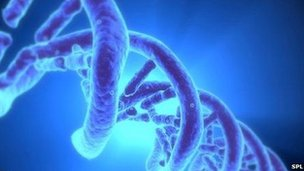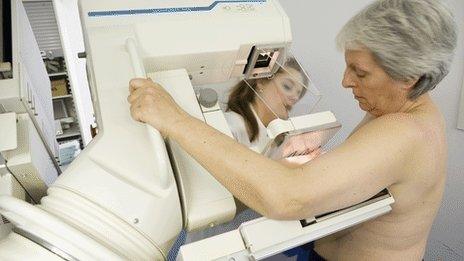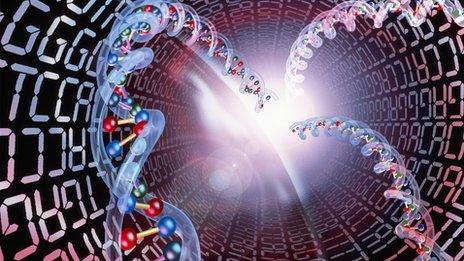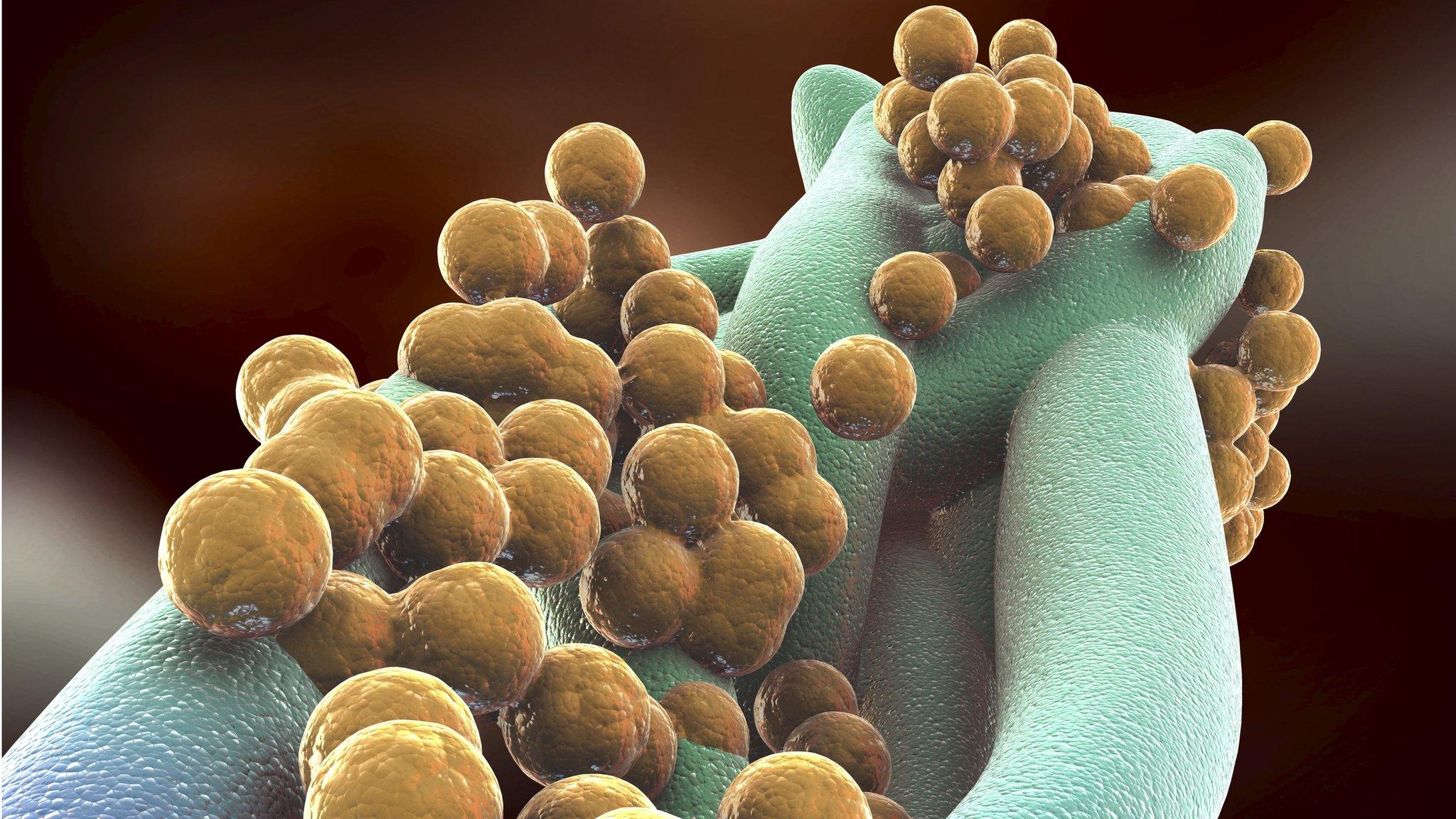DNA mapping for cancer patients
- Published
- comments

The human genome contains three billion pairs of code
Up to 100,000 patients with cancer and rare diseases in England are to have their entire genetic code sequenced.
The Prime Minister will announce £100m has been set aside for the project over the next three to five years.
The aim is to give doctors a better understanding of patients' genetic make-up, condition and treatment needs, and help develop new cancer treatments.
One human genome contains three billion base pairs - the building blocks of DNA.
Sequencing the code produces a huge amount of data. Although the price is falling fast, it currently costs £5,000 to £10,000 - which explains why no country in the world has embarked on mass DNA mapping on this scale.
When it will start - who will do the genome sequencing and analysis - has not been worked out - nor which patients will be eligible for the voluntary testing.
But the hope is by comparing genetic profiles of huge numbers of patients, it will allow scientists to understand why some do far better than others - and help in the quest for new treatments.
Privacy campaigners are concern such a move could allow personal data to be passed on to private companies, such as insurance companies.
Dr Kat Arney from Cancer Research UK: ''There could be very big benefits for cancer patients in the future''
But ministers insist the project is for medical research alone.
For existing patients, DNA mapping may lead to better targeting of medicines.
The power of this type of genetic analysis was demonstrated earlier this year when a study of 2,000 breast cancers showed the cancer should be thought of as 10 completely separate diseases.
Personalised therapies
There are already a handful of targeted treatments - for breast, lung, bowel and blood cancers - where tests for a single gene can reveal whether a patient is likely to respond.
For example, breast cancer patients are tested to see if their tumour is positive for 'Her2', a protein that can accelerate the growth of malignant cells. If so they can benefit from Herceptin, a drug which works on patients with high levels of the Her2 protein.
Whole genome mapping may yield more of these personalised therapies.
Speaking ahead of the announcement David Cameron said: "By unlocking the power of DNA data, the NHS will lead the global race for better tests, better drugs and above all better care."
The chief medical officer for England, Prof Dame Sally Davies, said: "Single gene testing is already available across the NHS ranging from diagnosing cancers to assessing patients' risk of suffering side effects from treatment.
"At the moment, these tests focus on diseases caused by changes in a single gene. This funding opens up the possibility of being able to look at the three billion DNA pieces in each of us so we can get a greater understanding of the complex relationship between our genes and lifestyle."
There are a number of existing projects seeking to improve understanding of the genetics of cancer, such as Cancer Research UK's 'stratified medicine' programme.
The UK is part of the International Cancer Genome Consortium which is planning to sequence 50 different cancers and catalogue their different mutations.
There are more than 200 types of cancer - it is a complex and highly resistant disease - the talk among specialists is less of cures and more of improved long-term outcomes.
So most of the benefits from these ambitious projects are likely to be among the next generation of cancer patients.
- Published18 April 2012

- Published25 January 2012

- Published14 November 2012

- Published25 October 2011
